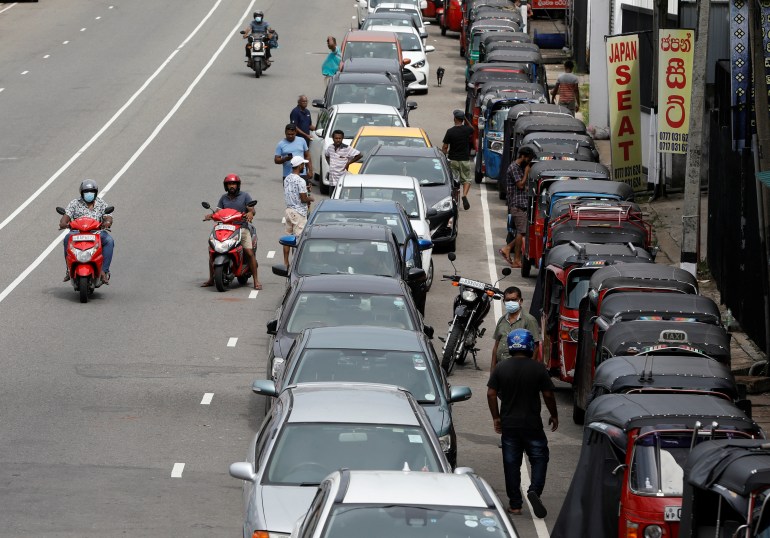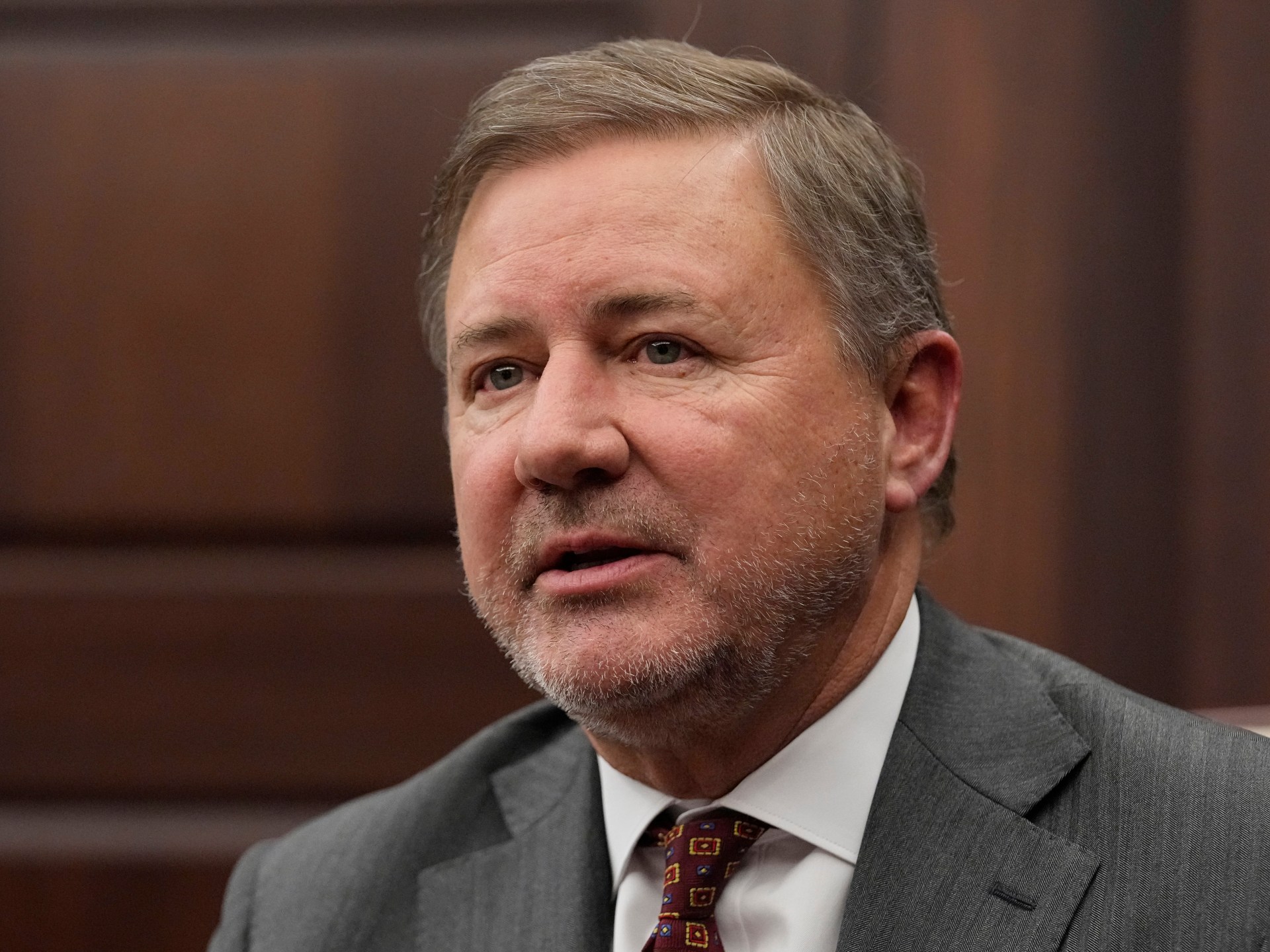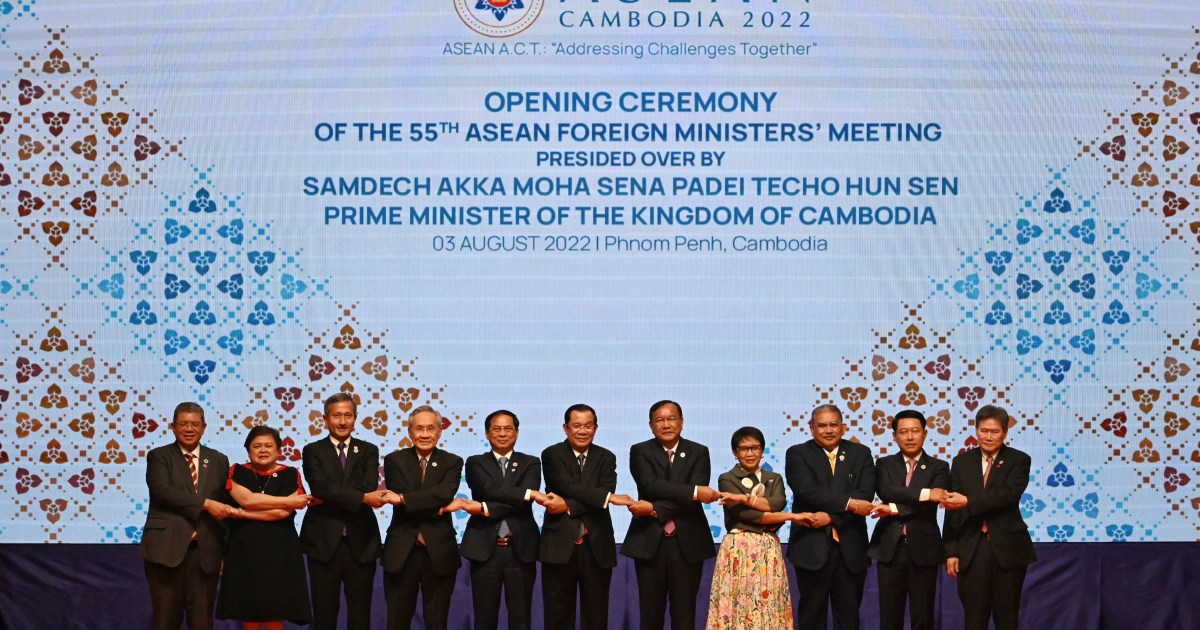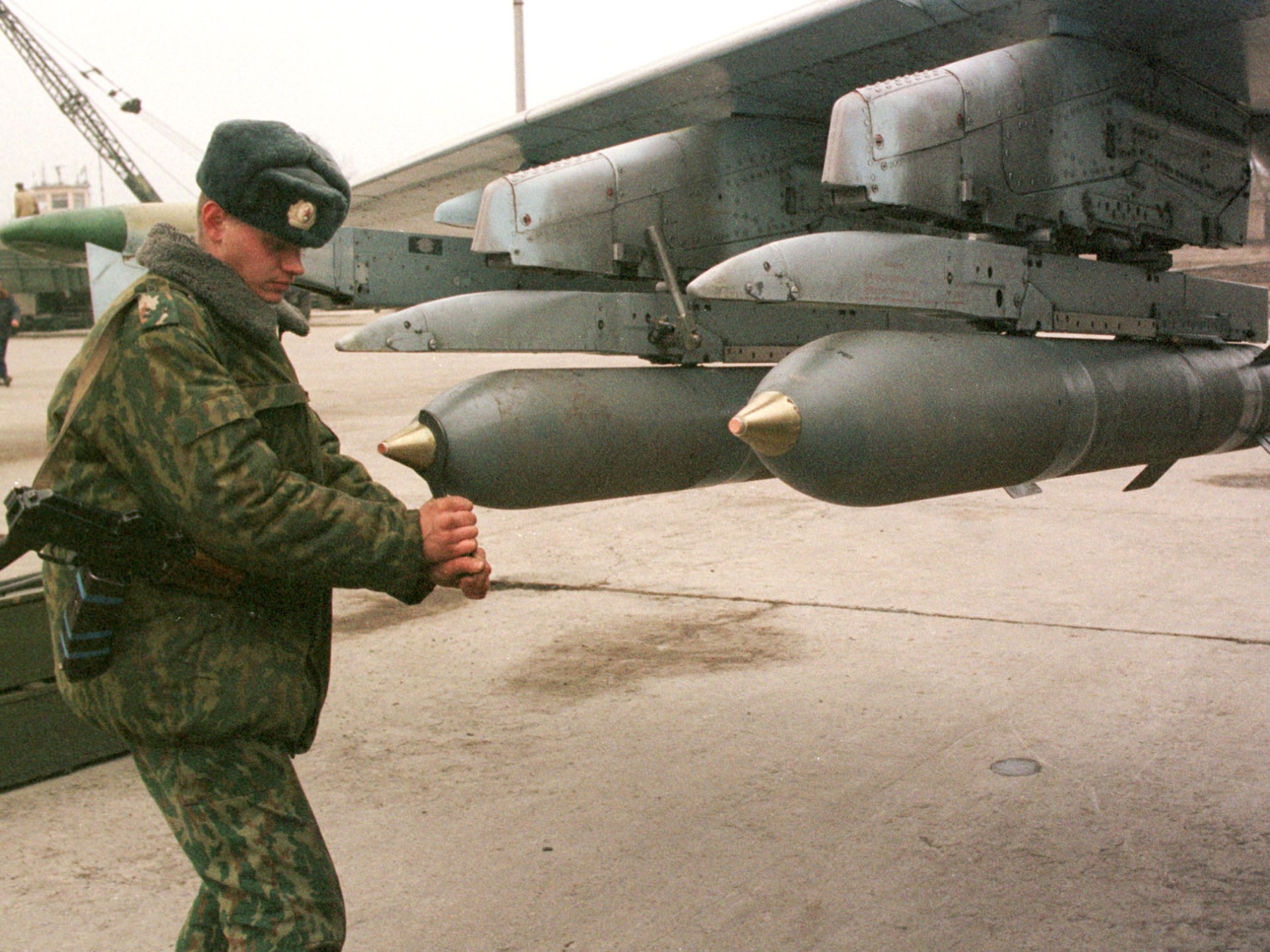Sri Lanka down to its last day of petrol, warns new PM | Business and Economy News
Sri Lanka’s newly appointed prime minister has said that the cash-strapped island nation has run out of petrol stock, as he said the country desperately needed to secure $75m in foreign exchange in the next few days to pay for essential imports, including medicine.
“We have run out of petrol … At the moment, we only have petrol stocks for a single day,” Ranil Wickremesinghe said on Monday in an address to the nation, as the country suffers from fuel and medicine shortages.
He said the government was also unable to raise dollars to pay for three shipments of oil, with the ships awaiting outside the Colombo harbour for payments before discharging their cargoes.
“The coming months are going to be the hardest this country has ever gone through,” Al Jazeera’s Minelle Fernandez said, reporting from the capital Colombo. “Obviously this affects all factors of life, not just the industrial sector and the manufacturing sector, but also day-to-day life, children going to school – every aspect you can think of, you name it.”
“So far the people did not have a clear picture of how bad things were. We kept getting reassured by successive politicians and that didn’t help as people had almost a false sense of optimism that things would be ok,” she added.
Economic mismanagement
Wickremesinghe assumed office on Thursday after his predecessor Mahinda Rajapaksa was forced out after weeks of protests over the government’s handling of the economic crisis turned deadly.
President Gotabaya Rajapaksa replaced Mahinda, his elder brother, with Wickremesinghe, an opposition parliamentarian who has held the post five times previously, in a desperate bid to placate protesters.
The crisis led to widespread protests against President Rajapaksa and his family, culminating in the resignation of Mahinda as prime minister last week following deadly violence.
But protesters have rejected the appointment of Wickremesinghe as prime minister and continue to demand the resignation of Gotabaya Rajapaksa. The protesters and experts have accused the Rajapaksas of economic mismanagement leading to the crisis.
Despite acknowledging the harsh time ahead, the new leader urged people to “patiently bear the next couple of months” and vowed he could overcome the crisis.
He said the government had also run out of cash to pay 1.4 million civil servants their salaries in May, and he will turn to money printing as a last resort.
“Against my own wishes, I am compelled to permit printing money in order to pay state-sector employees and to pay for essential goods and services,” he said.
He also warned that fuel and electricity tariffs will be raised substantially and his government will also sell off its revenue-losing national carrier to reduce losses.

Long queues at petrol stations
Meanwhile, in the capital, long queues of autorickshaws, the most popular means of transport in the city, lined up at petrol stations in a fruitless wait for fuel.
“I have been in the queue for more than six hours,” one driver, Mohammad Ali, told Reuters news agency. “We spend almost six to seven hours in the line just to get petrol,” he said.
Another driver, Mohammad Naushad, said the petrol station he was waiting at had run out of fuel.
“We’ve been here since 7-8 a.m. in the morning and it is still not clear if they will have fuel or not,” he said. “When will it come, no one knows. Is there any point in our waiting here, we also don’t know.”
Hit hard by the COVID-19 pandemic, rising oil prices and populist tax cuts by the Rajapaksas, the strategic Indian Ocean island nation, where China and India are battling for influence, is in the midst of a crisis unparalleled since its independence in 1948.
A chronic foreign exchange shortage has led to rampant inflation and shortages of medicine, fuel and other essentials, bringing thousands out on the streets in protest.
Wickremesinghe is yet to announce key ministers including the crucial post of finance minister, who will negotiate with the International Monetary Fund for badly needed financial help for the country.
Former Finance Minister Ali Sabry had held preliminary talks with the multilateral lender, but he quit along with Mahinda Rajapaksa last week.





Pingback: ufabtb
Pingback: https://lund-industries.com/?URL=https://gasdank.com/